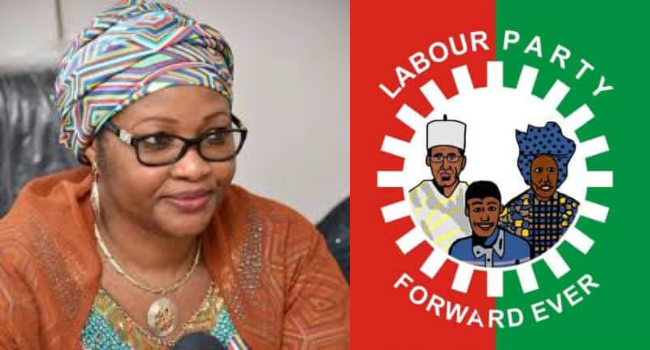In a significant leadership shake-up aimed at repositioning the Labour Party ahead of future political engagements, the party’s statutory National Executive Committee (NEC) has announced the appointment of Senator Nenadi Usman as the Interim National Chairman. This decision, which emerged from a high-level NEC meeting, also saw Senator Darlington Nwokocha being named as the Interim National Secretary, alongside several other members who now constitute the party’s interim working committee.
The development, which comes amid ongoing efforts to strengthen the internal structure of the Labour Party, is viewed by political observers as a strategic move to stabilise the party’s administrative framework following recent controversies and leadership tussles that have plagued its national body.
Senator Usman, a former Minister of Finance and ex-Senator representing Kaduna South Senatorial District, brings with her a wealth of political and administrative experience. Her emergence is seen as a calculated effort by the NEC to introduce credibility, balance, and inclusivity into the party’s leadership, especially in the build-up to future elections. She is widely regarded as a stabilising force with a history of public service and political moderation.
Likewise, Senator Darlington Nwokocha, who has served as the Chief Whip in the Senate and represented Abia Central Senatorial District, is expected to bring legislative competence and regional representation to the party’s management structure. Known for his assertive stance on national issues and party unity, his inclusion signals the party’s intention to build a formidable leadership bloc capable of navigating the political terrain ahead.
The new interim leadership is tasked with reconciling aggrieved factions, overseeing internal reforms, and laying the groundwork for a fresh national convention. Party insiders have described the new appointments as a “transitional necessity” in line with the party’s constitution, stressing that the decisions followed due process as stipulated in the party’s guidelines.
Sources within the Labour Party confirmed that the statutory NEC’s decision came after wide consultations with key stakeholders across Nigeria’s six geopolitical zones, in a bid to ensure fairness, national spread, and representational balance.
This move also appears to be a response to mounting public pressure on the Labour Party to clarify its leadership structure, particularly following the aftermath of the 2023 general elections and the party’s increasing relevance as a third force in Nigeria’s political landscape.
While the NEC has not provided a definite timeline for the next national convention, it assured members and supporters of its commitment to democratic values, party unity, and grassroots mobilisation.
With this leadership transition, the Labour Party hopes to regain momentum, restore internal cohesion, and position itself as a credible alternative in the evolving political atmosphere ahead of the 2027 general elections.
